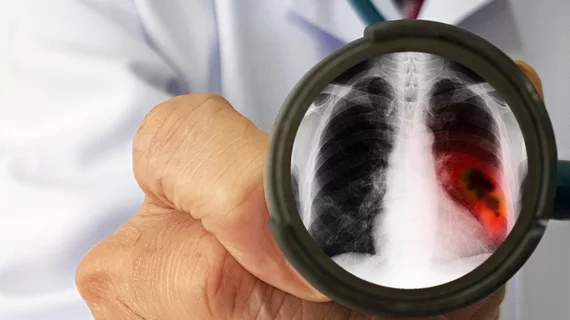FDA clears AI-powered software that pinpoints suspicious findings on chest X-rays
The U.S. Food and Drug Administration has cleared artificial intelligence-powered software able to pinpoint suspicious findings on chest X-rays, developer Imidex Inc. announced Thursday.
VisiRad XR was developed using curated data sets from across the globe. It deploys “state of the art” machine learning techniques, analyzing radiographs to highlight potential missed nodules and masses.
“Radiologists are looking for solutions to help elevate their performance and reduce burnout,” radiologist and chief medical officer Raj Chopra, MD, said in an Aug. 17 announcement. “With volumes increasing and staffing decreasing, tools like VisiRad XR are beneficial not only for patient care, but for helping radiologists continue to practice to their full potential.”
The Denver-based company said VisiRadXR can plug into existing imaging workflows, rerouting images to radiologists so they can see the results “right behind the primary image for interpretation.”
Imidex conducted two large-scale studies on the software ahead of its FDA submission. In one retrospective, standalone analysis including over 11,000 images, VisiRad XR detected nodules and masses at a sensitivity of 83% with a fixed false positives per-image rate and fixed device operating threshold. The company claims its AI offering could identify up to an additional 750 lung nodules or masses in one year at an average hospital performing 50,000 chest X-rays per year.

